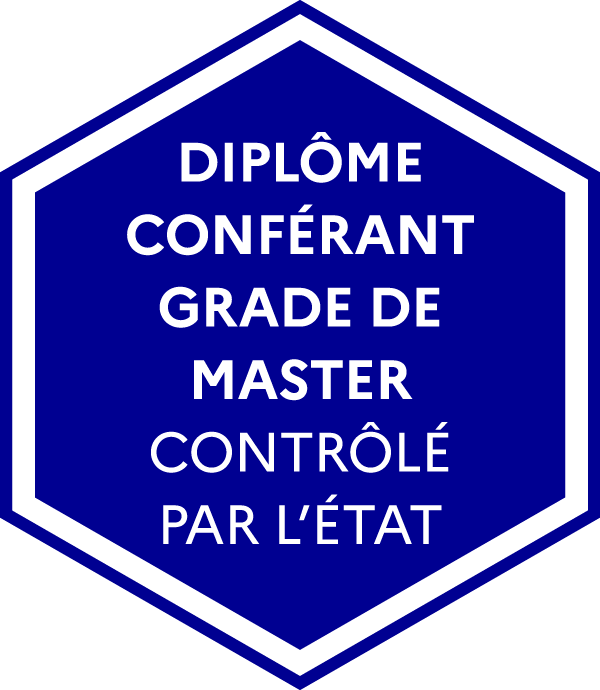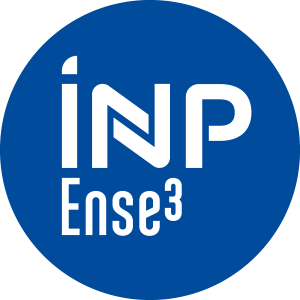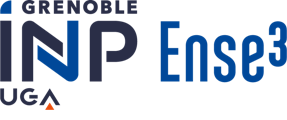Number of hours
- Lectures -
- Projects -
- Tutorials 240.0
- Internship -
- Laboratory works -
- Written tests -
ECTS
ECTS 10.0
Goal(s)
The primary aim of the Research Project is to provide second-year students with an initial immersion in academic research, conducted within a partner laboratory affiliated with the school. This experience is designed to foster the development of engineering skills through research-driven learning.
By engaging students early in the research process, the program seeks to enhance their ability to address complex problems by applying rigorous methodologies commonly employed in scientific research environments.
Each project is aligned with an active research program led by a faculty member or laboratory researcher. Students will be introduced to the research ecosystem and scientific reasoning, while applying their technical and analytical skills to a defined research question.
Depending on the nature of the project, the work may involve developing experimental prototypes to validate theoretical concepts, conducting numerical simulations, or designing innovative technical solutions in response to specific challenges.
Throughout the project, students receive structured guidance and mentorship from two dedicated coordinators appointed by the school.
The Research Project is embedded in the student’s academic curriculum through a dedicated course unit (UE). The choice of UE is made in consultation with the student’s academic advisor and is based on the research theme, the overall training objectives, and the student’s professional aspirations. A learning agreement must be signed and submitted to the academic registry within the first 15 days of the second semester.
Laurent DAVOUST
Content(s)
The Research Project spans a total of 240 hours of work per student over the course of the semester. This includes 120 hours of scheduled laboratory presence—typically organized as two half-days per week—and 120 hours of personal work, corresponding to an estimated eight hours per week throughout the semester. In addition, students are required to attend a mandatory 4-hour training session on bibliographic research, provided by the Science Library on the Saint Martin d’Hères campus.
During the project, students are expected to take responsibility for organizing and carrying out the following tasks:
Understand the research question and identify the scientific challenges involved;
Situate the project within its scientific context by conducting a comprehensive literature review;
Identify and plan the key stages of the research process;
Propose possible approaches and assess their relevance in collaboration with the supervising team;
Apply their technical and scientific skills to implement concrete solutions;
Present and critically assess the outcomes of their work, identifying both limitations and potential future directions;
Ensure proper documentation and knowledge transfer to support the continuity of the project.
By the end of the project, students are expected to demonstrate their ability to manage a research project independently, as well as to showcase their technical proficiency and a professional attitude consistent with the expectations of future engineers or scientists.
Effective project management adapted to the specific demands of research will be essential to ensure smooth progress. To support this, two assessment checkpoints are planned:
Mid-term reporting (mid-March): Students (working individually or in pairs) will deliver an oral presentation to confirm their understanding of the project’s objectives and challenges. A written summary and the presentation will be used to evaluate the team’s ability to contextualize the research problem within the current state of the art. Preliminary results are expected at this stage. A first grade will be assigned.
Final defense (end of May): The project will conclude with an oral defense and the submission of a final report, addressed to the project’s research supervisor. This evaluation will serve as the final assessment of the student’s engagement and achievements within the Research Project.
PrerequisitesBasic scientific konwledge
- Specific credits: this course brings 11.0 ECTS to students in Year 1 Master Hydraulics and Civil Engineering (M1 HCE)
Session 1
Continuous assessment (CC1) : 50% on the labwork + 25% written report + 25% oral defense and presentation of a poster or a video
Session 2
session 1 assessment retained (CC1=CC2), no resit for CC1
Personal work is essentially devoted to the project: 120h of personal work to be planned and integrated into project management.
- For engineering students: the module 4EU4PRE6 Research Project counts for 10 ECTS and replaces UE 4EUS4PRO Team Project / Projet d'ingénierie (5ECTS) and 1 UE in semester 8, to be defined in agreement with the track responsible, depending on the themes addressed in the project, the general curriculum and the student's career plan. This arrangement must be the subject of an educational contract validated by the track responsible and the student.
- For master SGB students : the module 4EU4PRE6 Research Project counts for 10 ECTS and replaces 4EUS4PRO Team Project (5 ECTS) + 1 module of 5 ECTS in semester 8 to be defined with agreement of responsible for M1 SGB.
- For master HCEE students : the module 4EU4PRE6 Research Project counts for 11 ECTS and replaces 4EUS4PRO Team Project (6 ECTS) + WEU2INT6 Internship/Project (5 ECTS)
The course exists in the following branches:
- Curriculum - Master's Degree in Engineering ASI - Semester 8
- Curriculum - Master's Degree in Engineering IEN - Semester 8
- Curriculum - Master's Degree in Engineering HOE - Semester 8
- Curriculum - Master's Degree in Engineering IEE - Semester 8
- Curriculum - Master's Degree in Engineering ME - Semester 8
- Curriculum - Master's Degree in Engineering SEM - Semester 8
- Curriculum - Master inter HCE - Semester 8
- Curriculum - Master inter SGB - Semester 8
Course ID : 4EU4PRE6
Course language(s): 
You can find this course among all other courses.
French State controlled diploma conferring a Master's degree




